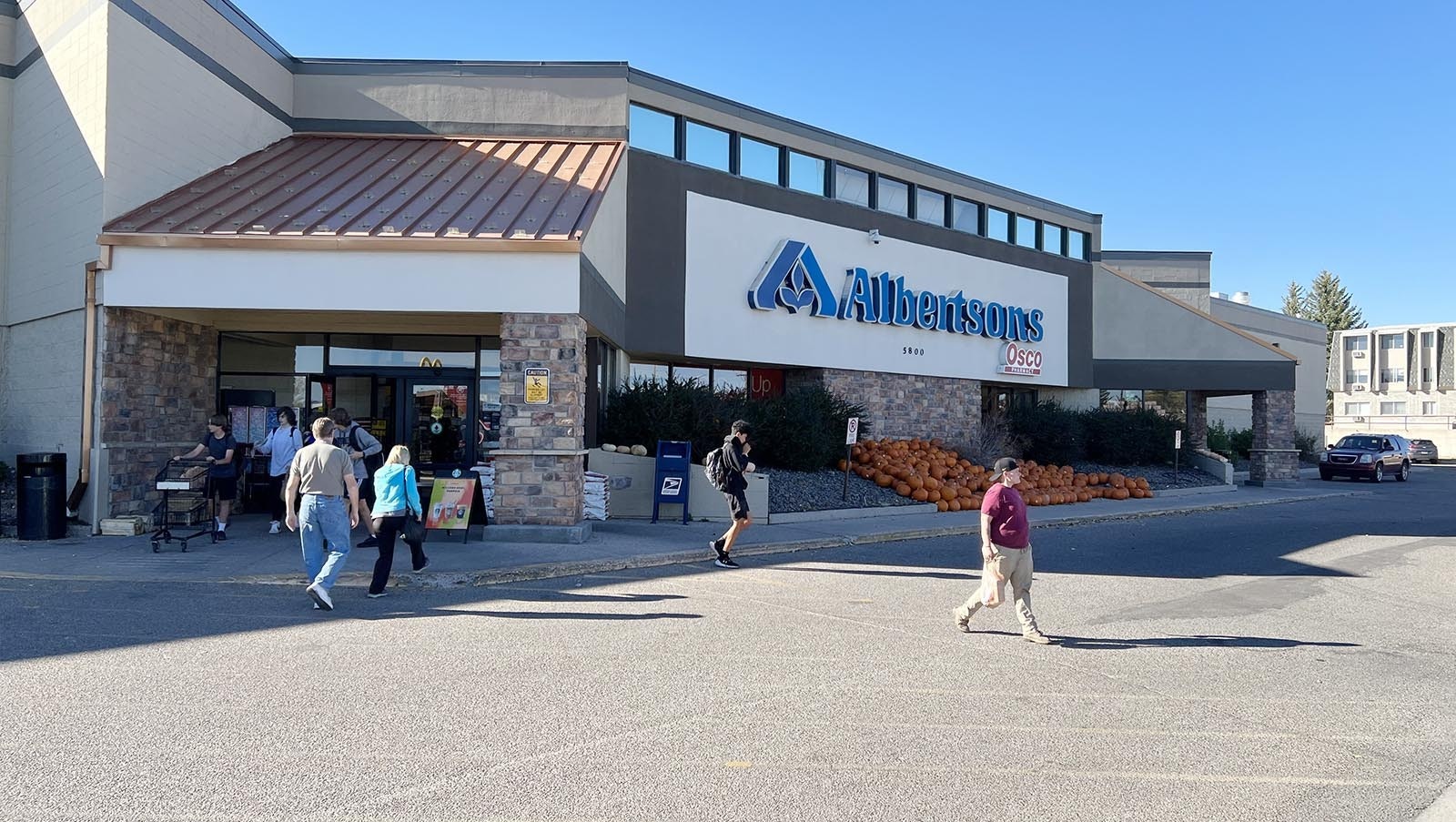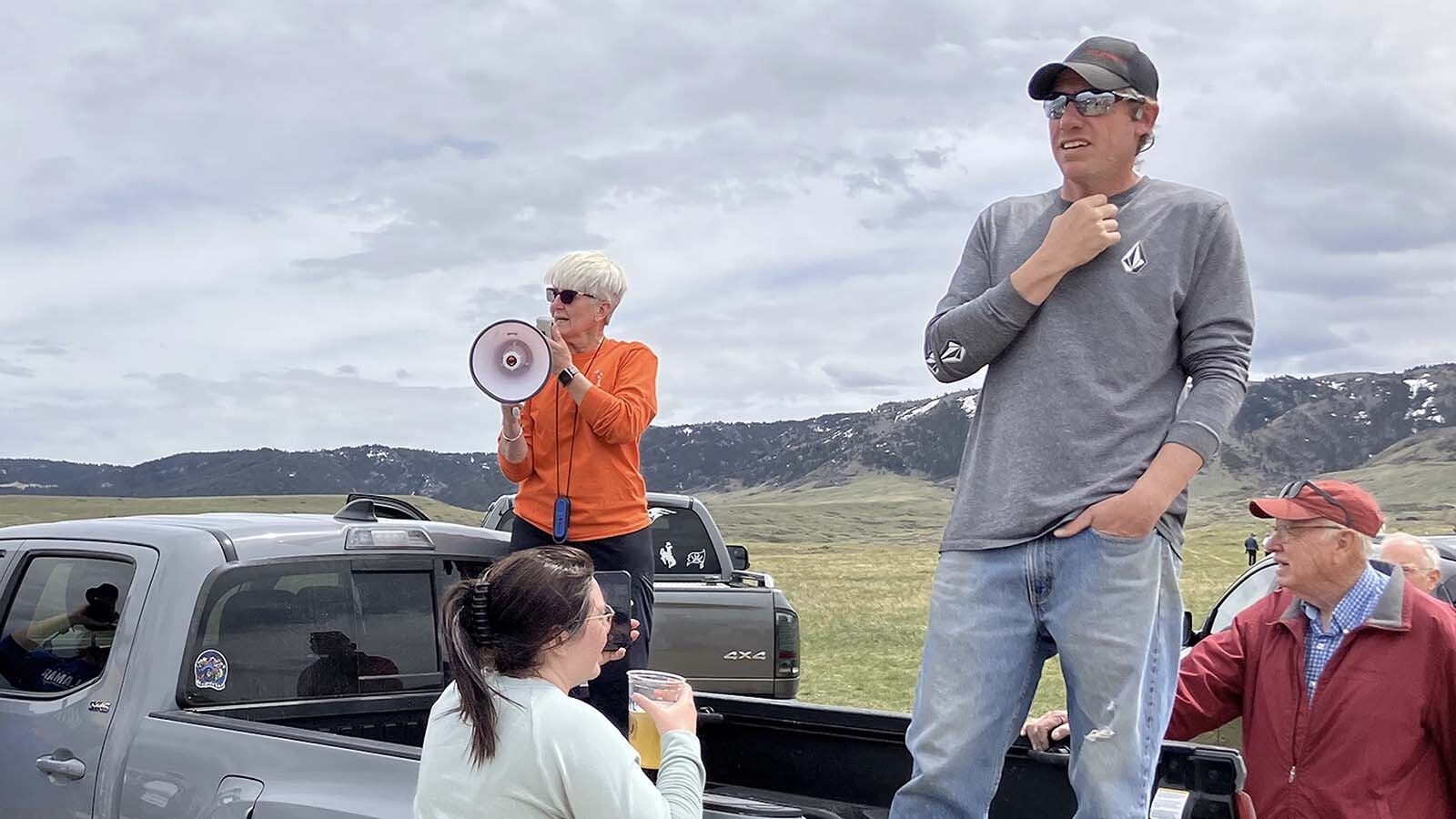By Renée Jean, Business and Tourism Reporter
renee@cowboystatedaily.com
Four states have filed lawsuits to stop payment of a dividend from Albertsons that a local union representative has said is a ploy to cripple the grocery chain and ensure a planned mega-merger with Kroger goes through.
The attorneys general for Illinois, California and Washington, D.C., filed the lawsuit in U.S. District Court in Washington, D.C., on Wednesday to stop payout of a $4 billion dividend to Albertsons shareholders.
The suit follows another filed in state court by Washington state Attorney General Bob Ferguson.
Both Albertsons and Kroger operate grocery stores across the nation, including Wyoming. Cowboy State Daily reached out to Wyoming Attorney General Bridget Hill about whether she may consider a similar move. She didn’t respond prior to posting.
Union Rep Skeptical
UFCW Local 7 President Kim Cordova has been vocal about what she believes the monster merger of Kroger and Albertsons will mean for consumers and workers. She told Cowboy State Daily they should expect more food deserts, higher prices and layoffs.
She also said the dividend payout is a way to ensure that the investment into the merger of the two giant grocery chains becomes too big to fail.
“Kroger’s going to come and say, ‘Look FTC, you’re going to have to approve this because Albertsons just, you know, gave all their money back and they’re going to file bankruptcy, and so you need to approve this,’” she has told Cowboy State Daily. “They’re just making the merger go through. They’re not going to operate both stores within the same parking lot.”
Dividend Will Be Paid
Kroger and Albertsons have meanwhile said the lawsuits against the dividend are meritless and provide no legal basis for canceling or postponing a dividend that has already been unanimously approved by the Albertsons board of directors as part of a “strategic alternative” to “enhance growth and maximize shareholder value.”
“The special dividend announced on Oct. 14 is the means by which we are independently executing our longstanding capital return strategy and is scheduled to be paid to Albertsons Cos.’ Stockholders on Nov. 7,” an Albertsons Companies spokesperson said in an email to Cowboy State Daily. “It is not contingent on our merger with Kroger, and is not in any way a condition to Albertsons Cos.’ Or Kroger’s obligation to consummate the proposed merger. It will be paid regardless of whether the merger is completed.”
The statement also says that Albertsons has great financial strength and a positive businesses outlook.
“Payment of the special dividend will not hinder Albertsons Cos.’ ability to continue investing in our stores and technology to provide an even better shopping experience while we continue to operate as an independent company,” the statement continues. “It will not impact the agreements we have made with unions representing our associates to increase wages and benefits.
“Our planned combination with Kroger will provide significant benefits to consumers, associates and communities, and offers a compelling alternative to larger and non-union competitors.”
Purposeful Bankruptcy?
In his lawsuit, Ferguson details a different view of the dividend payout, which he said will include a $1.5 billion loan.
“Surprisingly, Albertsons plans to pay $4 billion not from its surplus profits, but rather out of critical operating margins it needs to stay afloat over the next 12 months,” Ferguson wrote in his state’s lawsuit, which outlines similar concerns as Illinois, California and D.C. “Albertsons publicly disclosed that it will use $2.5 billion in cash on hand and will finance the remaining $1.5 billion through loans.”
That reduces Albertson’s cash on hand by almost 75%, Ferguson claims.
“Albertsons already has low credit and liquidity ratings, and announcing payment of the Special Cash Dividend already has lowered its liquidity rating even further,” Ferguson’s filing continues. “In further downgrading Albertsons’ non-investment grade liquidity rating on Oc.t 14, 2022, Moody’s noted that it reflected ‘Albertsons lower cash balances and reduced revolver availability following the payment of the dividend.’”
The payout will also lessen Albertsons ability to obtain financing to maintain and expand infrastructure, stock shelves, and pay employees, Ferguson suggested, before going on to criticize the overall merger as well.
More Questions
Divesting 100 to 375 stores as part of the merger won’t create a viable competitor to address the concerns about a monopolistic structure in what are a very large number of markets, Ferguson said, particularly when the argument the companies make for merging in the first place is that they must merge to effectively compete in the grocery industry.
“There are serious reasons to be skeptical (of this claim),” the suit states. “Washington’s experience with Albertsons’ 2014 acquisition of Safeway pursuant to a similar proposal, serves as a cautionary tale for allowing future similar deal structures to proceed.”
Ferguson is referring to a spinoff created during a previous Safeway merger, the Haggen grocery stores. These were supposed to be the answer to retaining competitiveness in the grocery store market for that merger. But, as both Ferguson and Cordova pointed out, those stores no longer exist. They were ultimately unable to meaningfully compete and declared bankruptcy.
That has both Cordova and Ferguson suggesting the Spinco spinoff that’s proposed for this merger is just spin to make the deal seem palatable to federal regulators.
“All of that was a debacle,” Cordova previously told Cowboy State Daily. “These big companies, they’re going to divest low-performing stores or sell those stores off. They’re selling them to themselves. It’s just a way to get this merger to go through.”
With the overlap between existing stores, and the likely closure and, Cordova believes, inevitable bankruptcy of the spin-off Spinco, she expects the Albertsons-Kroger merger to lead to more food deserts and higher prices, as well as layoffs of grocery store workers.





